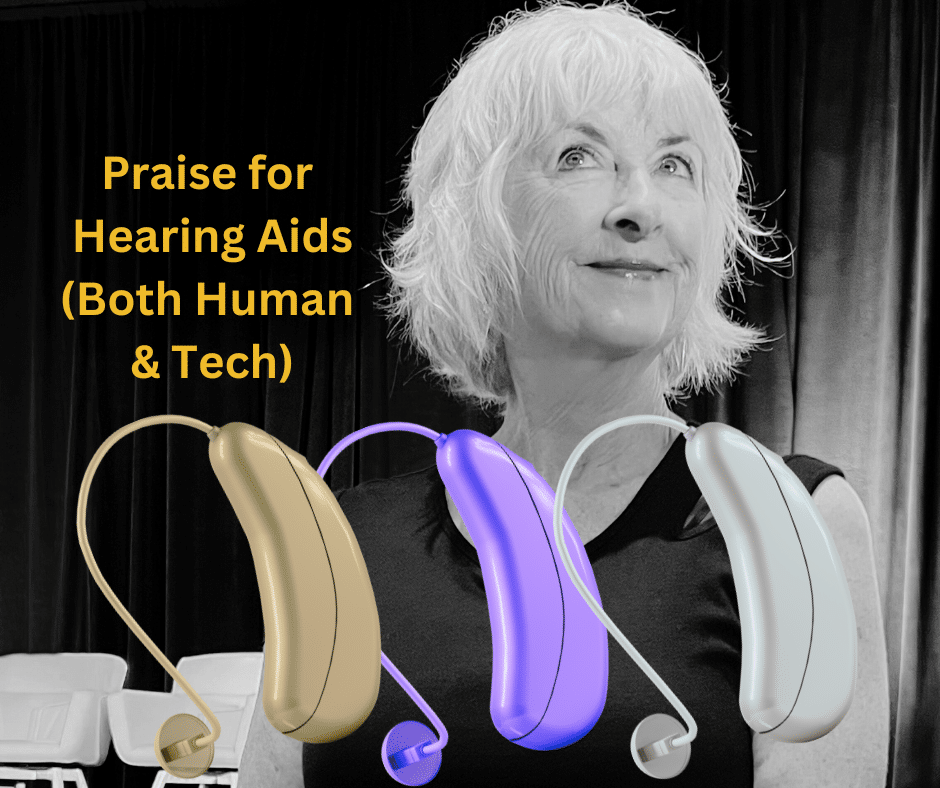The annual convention of the Hearing Loss Association of America just wrapped up in Phoenix, Arizona.
This means I must wait an entire year for the next one in Indianapolis, Indiana. (I’m clarifying the states for one of my sisters-in-hearing loss who is geographically challenged. I’m Canadian and good at American geography. I do what I can to help.)
The end of this fabulous convention has left me tired, over-stimulated, financially a little poorer – also inspired, invigorated and with a richer life with hearing loss.
I have new people in my life. I discovered new technical tricks. I learned never again to visit Phoenix in summer; my northern body requires cooler temperatures than 110F, also known as 43C in Canadian.
The HLAA convention features an annual Research Symposium and this year’s topic focused on The Emotions of Hearing Loss, a subject of intense interest to people whose daily lives are framed and permeated by communication challenges. I was honored to be part of the presentation team that included Dr. Ivette Cejas, Dr. Barbara Weinstein, Dr. Kathy Pichora-Fuller, and Dr. Peter Dixon. The academics presented interesting research on the psychosocial dynamics of living with hearing loss, and I had a blast presenting the emotional face of hearing loss in a series of dramatic-comedic vignettes.
But the joy of the convention, like any gathering of people with hearing loss, is centered on this sweet spot: human beings connected by technology. Almost 500 people, most using some form of personal hearing device, were able to connect more easily though visual interpretation such as CART captioning, and hearing loops in every single meeting room and banquet facility. Also, thousands of eyeball-to-eyeball conversations, often supported by speech to text apps.
And the takeaways are always life-changing.
If you have never found your way to an in-person hearing loss meeting or conference, make it your goal to make it happen. Join me in Indiana! The event will increase your gratitude for both technology and the people sharing it with you.
Ode to an Aid
Before I say goodnight
I’m looking at you closely for the first time in a long time
I’m thinking about how much, to my surprise, I care for you—and why.
Well, it’s not because of your looks.
One square inch of plastic and wires,
Your colour referred to professionally as flesh tone
By people without imagination as beige
And by me, in all honesty, as ugly.
You look like an extracted tooth
With a white beard
Your shiny surface reflects light, except where bits of wax
Nestle in your curves and creases, waiting to be wiped clean.
For such a small creature, you have a lot of orifices,
Openings that suck sound in one end and belch it out the other
An air vent that prevents feedback
And my favourite is the clasp that grabs fresh batteries
Then you chime your delight
Immediately changing
From a lifeless lump of plastic
To a life-changing spark plug.
Do you know what they say about beauty?
It’s what’s inside that counts, and I guess that’s true about you.
But I don’t really want to see your insides
Because I’d be disappointed not to see tiny hearing elves
Making magic happen.
I do love you, you know.
For all the times I’ve cursed you, dropped you, and let dogs eat you,
I’m sorry.
I have expected more from you than you can deliver,
Because you’re not a perfect hearing system. Not yet.
And I have not thanked you when you delivered more
Than I ever expected, giving me sounds that my memory had lost
And new ones that didn’t exist before my hearing left,
Like the sound of my own baby breathing.
No, you’re not pretty.
You’re high maintenance.
You cost money.
But if I didn’t have you, I would be Isolated, cut off from my people.
So no, you’re not pretty—you’re beautiful
And I love you, Good night.






